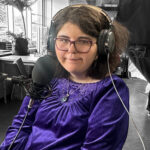The Silent Battle: Caregiver Mental Health in the Realm of Autism

FEATURED POSTS
February 10, 2026
January 27, 2026
In the quiet corners of countless homes, a silent battle is being waged every single day. It’s not fought with weapons or on a battlefield. It’s fought within the hearts and minds of caregivers for those with profound autism and intellectual and developmental disabilities (ID/DD).
The mental health challenges these caregivers face are often overlooked. However, some studies say they’re as intense and real as those that war veterans or caregivers for terminally ill children face.
The Unexpected Battlefield
Post-traumatic stress disorder (PTSD) symptoms are increasingly common for mothers of children with autism. Some researchers have compared the stress profiles to those of combat veterans.
That might seem shocking until you consider the constant stress these mothers face daily.
Unpredictable behaviors, communication barriers, and overwhelming needs are associated with profound autism. They can trigger a constant state of high alert.
Some compare those maternal cortisol levels to hypervigilance of a soldier on the battlefield. It’s a feeling of always on guard, always ready for the unexpected. Over time, this sustained state of stress can lead to PTSD. It manifests as intrusive thoughts or emotional numbness. Some people feel the need to avoid situations that remind them of traumatic experiences.
Stress Can Be Debilitating
Parents and caregivers of children with profound autism and ID/DD also share another similarity. Their mental health profiles can reflect higher levels of strain than those with parents of children with other disabilities. These caregivers experience chronic sorrow, anxiety, depression, and stress. It can be debilitating.
Some studies link these overwhelming feelings to caring for a child with a terminal illness. This comparison isn’t meant to equate autism with terminal illness. Instead, it highlights the significant emotional burden some caregivers carry. They grieve for the typical life their child might have had. They worry incessantly about their child’s future. They grapple with feelings of helplessness and exhaustion.
Understanding the Differences
It’s important to note that there are differences between DD (developmental disabilities), IDD (intellectual and developmental disabilities), and autism. While autism can be classified as a DD or an IDD, not all DD/IDD diagnoses are autism. Autism is characterized by social interaction difficulties, communication challenges, and a tendency to engage in repetitive behaviors. However, the severity of these symptoms can vary greatly from one person to another. Autism exists on a spectrum, and it’s different for every child.
Recognizing Caregiver Burnout
The first step to providing better support is recognizing the burnout caregivers can face. Mental health professionals, friends, and family are starting to acknowledge the emotional war some caregivers fight.
Some caregivers find support through resources like respite care, peer support groups, and counseling. Some providers offer stress management strategies, and researchers are trying to better understand caregiver PTSD to come up with more effective interventions.
Recognizing burnout and offering resources and relief are part of supporting the autism community. The silent battle these caregivers face doesn’t have to be one they face alone. The road ahead may be long, but with increased awareness and support, together, we can make it a little less daunting for those who tread it every day.





